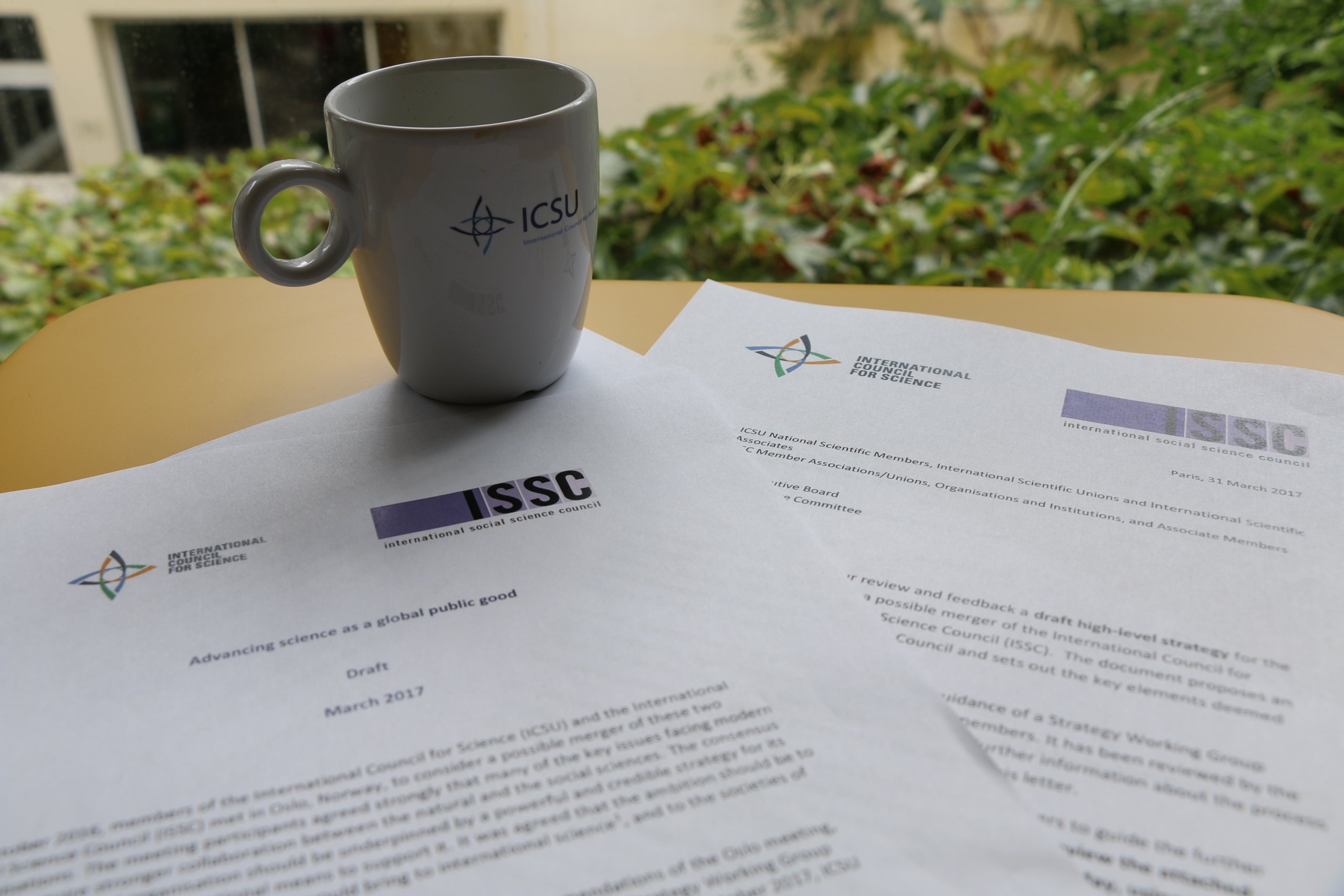Following a call for review, the memberships of both the International Council for Science (ICSU) and the International Social Science Council (ISSC) provided instructive and considered feedback on the draft high-level strategy proposals for a new merged organization representing all the sciences. Feedback was received from 27 members representing 16 countries in response to the publication of the draft strategy in March.

The draft strategy was prepared under the guidance of the Strategy Working Group (SWG) and reviewed by the ICSU Executive Board and ISSC Executive Committee. It lays out proposals for a statement of purpose for a new organisation that would result from the merger between the two councils, and key elements deemed necessary for its achievement.
In the feedback, members voiced support for the proposed merger as a way of consolidating the strengths of a broader range of scientific disciplines, along with reservations about how to effectively implement the broad scope of themes and activities proposed for the new organisation.
At a Town Hall meeting of 35 stakeholders convened by the Royal Society in the United Kingdom, many expressed a belief that when it came to policy engagement, particularly for tackling major global challenges, “few, if any, effective interventions were possible that did not include both natural and social scientists.”
This view was also echoed by feedback from the American National Academy of Sciences that “both the natural and social sciences are necessary to address the complex challenges facing the world today, and both inform and influence each other.”
Within the feedback there was also thoughtful commentary on how to utilize the relationship between members and the new council to build effective new programmes and have impact at local, national, and regional levels.
In their document, the International Union of Geodesy and Geophysics (IUGG) echoed others in arguing that the merger should strengthen cooperation between members between and within both councils, “emphasizing a bottom-up rather than top-down cooperation mechanism.”
One of the recurring reservations, expressed particularly by the ISSC membership, is how the merger will integrate both councils as equal partners. The Royal Society Te Aparangi, New Zealand, relayed the concerns of some social scientists in their network that “there is the potential for social science voices to be overly subsumed under the larger science project…serving as commentators on big science ideas rather than as a leader of key themes.”
The vote will take place during a joint meeting of both councils at the ICSU General Assembly in Taipei in October 2017. Members from both councils will receive the final versions of the strategy and governance proposals by the end of July.
Read the full responses and find further information about the merger process on the dedicated webpage which is being updated on a regular basis.
Full information about the General Assembly, including instructions on how to register, are available on the event page.